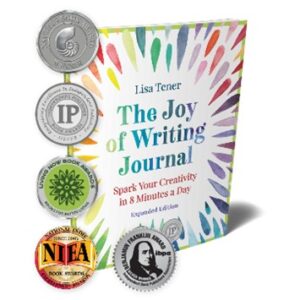 by Lisa Tener, Reprinted with permission
by Lisa Tener, Reprinted with permission
In my most recent post, I answered a soon-to-be-published author’s questions about distribution for a traditionally published book; today, I answer their second question: “How should I publish my short stories?”
So, short stories are not in my purview, but I know enough to provide some guidance to this writer. My goal was to ascertain enough information from the author to provide general direction and offer several appealing options to him.
In my mind I hoped to ascertain whether this author likely had a shot at getting a book deal for the short stories (i.e., fantastic writing and a significant platform required) or whether the author needs to improve the writing and/or needs to grow their following/platform. Also, what is the best avenue for this writing given their current platform, willingness to do further work, and other factors?
Questions to Discern the Best Publishing Path for Your Stories
I asked the author some questions:
- What is your current reach/platform/following?
- Are you willing to hire an editor and/or writing/publishing coach?
- What are your goals (a book? or reaching people in any possible way, such as magazines, subscription service, books, ebooks, etc.?)
- Are any of the short stories published online or in magazines or journals?
I did not hear back about reach/following, so I assume it’s small. Most likely this author will need to self-publish (not a bad option at all), but they could work with an editor and publishing coach to see if they can publish individual stories first and start to grow their readership before a book comes out.
I also spelled out a variety of options for this author.
How to Publish Short Stories
Option 1: Submit Your Stories to Magazines and Online Magazine-Type Websites
You can Google “Where to submit short stories?” to get some excellent lists but note that many will start with the highest-tier options, which are extremely difficult to crack! You may want to narrow down the search by adding additional keywords to your search.
I also asked my colleague Jane Friedman about this, and she suggested some excellent resources:
“Lit Mag News (a newsletter by Becky Tuch at Substack – excellent in pointing out opportunities)”
“Chill Subs, a great database of lit mags and more.”
I recommend working with an editor to make your writing as compelling as possible. You may even want to edit the story based on where you are submitting it so you appeal to the particular audience and orientation of that publication. Also, make sure you follow their submission guidelines!
Option 2: Enter Short Story Contests!
Again, use an experienced short-story editor to help you thoroughly polish your story. You may also want to gather a few beta readers to provide feedback. Then, research short story contests (again, an easy Google Search) and enter any contests that seem like a good fit. Make sure your research includes reading submission requirements, judging criteria (if published), past winners, etc. This will help you be more effective and efficient in your efforts.
Jane also recommended Literistic, a monthly newsletter for information on contests, fellowships, and more.
Option 3: Join a Site for Authors to Offer Subscriptions to Readers
I remembered Jane Friedman sharing information about subscription services, so I initially contacted her about this post. She suggested Patreon as a subscription service for short stories and Ream for longer fiction.
Option 4: Publish Your Short Stories in a Book
Unless you have a big platform, a fresh voice, and exceptionally high-quality writing, you will likely need to self-publish. That’s not a bad thing at all! There are many advantages to indie publishing, including a significantly higher profit per book sold, faster time to market, maintaining complete artistic control, the ability to innovate, and more.
My one piece of advice here is: don’t skimp on support. The better your editor, the more skilled your designer, the more knowledgeable the people you hire to publish the book and help you choose categories on Amazon as well as help you with the back cover copy and your Amazon book description, the more likely your book will be recommended by others, reach more readers, and help you realize your vision and goals.
Additional Resources:
Duotrope has been around since 2005, and for $5/month or $50/year you can search their extensive database of current fiction, poetry, nonfiction, and visual art publishers and agents. They offer a calendar of upcoming deadlines and a personal submission tracker, and they collect data on publishers and agents, available to subscribers.
A Personal Note
 Earlier this year, I wrote a short story. I think that’s my first short story since ninth grade!
Earlier this year, I wrote a short story. I think that’s my first short story since ninth grade!
I felt pretty excited about it, but I’ve searched my journals and cannot find the first draft anywhere! Too many journals, perhaps. Now that the aspiring short-story writer has inspired me to do all this research, I’m committing to making another attempt at finding that story! After I type and format all the poems that have been coming through, that is.
Lisa Tener is an award-winning book-writing and publishing coach. Her clients have secured five and six-figure book deals and won numerous book awards. Lisa’s latest book, The Joy of Writing Journal: Spark Your Creativity in 8 Minutes a Day, won five book awards, including the Nautilus and Ben Franklin.

Could you kindly assist me in associatibg me with someone who would give me feedback regarding my writings(stories)
I recommend this writing workshop: https://lopopololiterary.com/womens-fiction-nonfiction-sundays/
Please help me with my writings.
Story is about
Pingback: Sell Short Stories and Succeed - Book Career In A Year
Pingback: Making a Living Writing Short Stories - Book Career In A Year